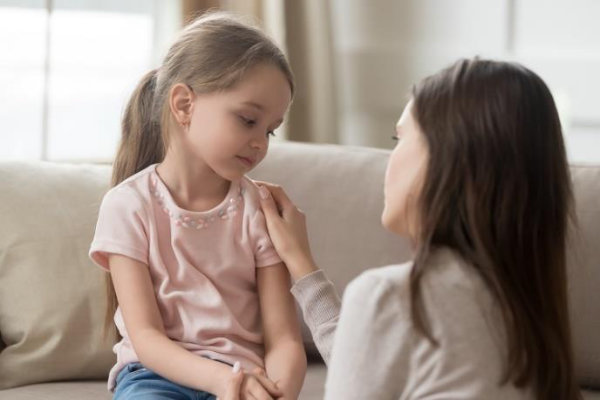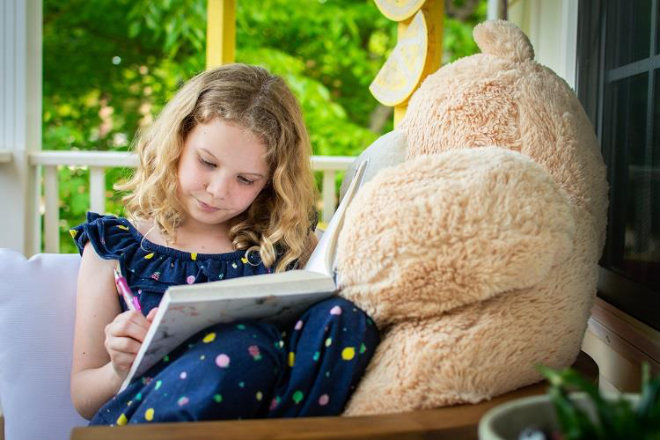
Children can be extremely strong and resilient. However, having to tell your child that someone close to them has died can be a terrifying prospect. Parents can feel overwhelmed and may not know how much information to divulge, how to tell them, or when they should do it. We understand how difficult this situation is, especially when children are involved. Here is a parent’s guide to talking to children about death.
Following the death of a loved one, anyone can experience a huge range of emotions from anger to sadness and everything in between. Children are no different. In fact, their emotions can be even more volatile as this may be their first-ever experience of death and grief. Our guide is here to help parents and carers through the process. It is natural to protect your children and some parents may feel like it is shielding their children from pain by not involving them in the process. However, it is important to ensure they are included in all that is going on and that there is no pretending as it can potentially make things worse.
What parents should consider before telling children the news
- Ensure you are talking to children honestly about what has happened and explain the situation in a way they will understand, but without lying to them
- Discuss with them the funeral plans. Explain what the funeral will involve and why they take place. If possible, give them the choice of whether they want to attend to say goodbye
- Continue to talk about the person who has died. We know this can sometimes be painful but it can also be comforting and by talking about your loved ones, your children will continue to remember them
- It’s natural for your child to experience a range of emotions once you have told them. They may quickly change from being sad, confused, guilty, scared and more at the drop of the hat. Not only should you be prepared for this sporadic behaviour, make sure you tell your children it is natural as it can be scary when you are not in control of your emotions
- Ask for help whenever you feel like you need it.
How to break the news
- Prepare yourself first and take a deep. It is tough what you are about to do but you can do it. Ensure you have a rough idea of what you are going to say. Also, make sure you are aware of all the facts. Children are great at asking questions and they will inevitably have a lot once you have told them the news
- Pick your time and place carefully. Try to choose somewhere quiet. Also, ensure you are not in a rush and you have time to go through everything with them. Weekends can often be a good time as it means you are there for them if and when they need you
- If you feel like you need support, ensure you have someone you trust nearby to help you and who can be a source of comfort for both yourself and the child
- Start by easing them into it and tell them you have some bad news rather than launching straight into it. Your child may already know some of the details or realise what it is about, so try and find out how much they already know and whether they have any other questions or want to discuss how they are feeling
- When you are telling them what happened, break it up into stages. It may feel like you want to just get it all off your chest at once, but overloading a child with information can be overwhelming.
Practical ideas for parents in the early stages of child grief

- Let your child’s school know about the loss so that they are aware of the situation and can offer additional support
- Children can often regress slightly into younger behaviour. This is extremely common and don’t tell them off for doing it. Instead, adapt to the new behaviour
- Cooking special foods that your child loves or used to love when they were younger can be comforting and reassuring. However, ensure they are not overeating as people can often turn to food as their main form of comfort which can lead to other issues
- The news of a death can be shocking and this shock can often physically affect people and make them feel cold. Try giving them lots of hugs and provide blankets. The physical closeness and being wrapped up can provide a huge amount of comfort and help them feel protected
- It is also common for children’s sleep to be affected after they have heard the news. If your child is suddenly struggling to sleep, try playing music softly whilst they are falling asleep. Also, provide them with a nightlight if you think it will help
- Stick to a routine as much as possible. Keeping other aspects of your child’s life as normal as possible can really help them feel more secure
- Try and keep them physically active. Not only is this great for their physical and mental well-being, but it can also help combat anxiety
- You might want to start a project with your child to create a memory box for your loved one that you have lost. Fill the box of photos and valuables whilst telling them stories. Children need to know it is OK for them to still talk about the person who has died.
- Allow them to express their emotions throughout the conversation and explain to them that they can feel however they want and that you are there if they need to talk about anything
- Depending on the age of the child it can take a long time for the news to sink in. You may need to repeat the information over time to ensure they have grasped the situation.
A Child’s reaction to grief

As we have previously mentioned, grief can take the form of a myriad of emotions and this is the same for children. Here are just some of the reactions you may experience once you have broken the news to your child
- Anger
- Aggressive behaviour
- Anxiety
- Becoming extremely clingy
- Irritable
- Having issues at school and lack of concentration
- Sleeping issues
- Changes in eating habits
- Wanting to share your bed
- Mimicking the behaviour of the person who has died
- Acting younger or older than their age
This is a shortlist and is by no means a restrictive one. The range of emotions a child can feel after a loss is varied and the majority of emotions are common. If at any point you feel like you do not know what to do when your child is behaving differently, then you can always seek advice from a professional.
Different Age Groups
No matter what age your children are, it is still important to tell them what has happened. However, the way you approach it may be different. Here are just a few tips depending on the age of the child:
Toddler
At the age of 1-3, most children have yet to experience loss and they may not understand a lot of what you are telling them. Children are very perceptive though and they will probably pick up a sense that something sad has happened.
Give them plenty of hugs and explain why you are sad. Reading books about these emotions can often help. Ensure they also have plenty of time to play. They will not understand a lot at this age so you want to ensure routine is still in place and they can carry on playing and learning.
Children aged 3-5
At this age, children are starting to know more but will probably still struggle with the concept of death and how final it is. Explain to them how when someone dies they do not come back. Whilst this is a scary topic for someone young, it is important they know the truth. Avoid lines like “passed away” or “lost” as this can just cause confusion.
School-Aged children 5-11
Children will start to understand more about death at this point, even if they haven’t had to deal with grief first hand yet. This is when you can start explaining death in a bit more detail. You do not need to go into anything traumatic, however simply explaining how all living things from plants to pets and people do die. Whilst it is horrible to hear, it is a lesson everyone needs to know, even at a young age.
Teenagers
Whilst teenagers will have much more of a grasp of death by this age, it can be an extremely tough time for them to cope with grief. Death can impact teenagers significantly as they are already going through a transformative and often emotional time of their life. Ensure that when you discuss the loss of a loved one that you are there to answer any of their questions. Also, help them to channel their emotions in creative and healthy ways. From journaling and writing down your feelings to art or sport, there are many options they can take to help support them on the journey and help with their stress and anxiety.
Remember that although they are technically still children, they are on the brink of adulthood, so ensure they are given the option to be involved in adult discussions as they will probably want their opinion heard and taken into account.
Looking after yourself
You must remember that you are needed by your children therefore not only do you need to look after them, but you also need to ensure you are looking after yourself as well.
Make time for yourself, check that you are getting enough sleep, eating nutritious meals and sharing your feelings.
If you need help at any point, it is completely understandable and you should seek it. Whether this is support from friends and family, support groups or online resources, there are plenty of options out there for you.
Children and Funerals

Attending a funeral can be beneficial for a child as it can help them understand the finality of death and provide them with an opportunity to say goodbye. Whilst children of any age are allowed to go to funerals, children need to have the option about whether they want to go. You need to ensure they know they can make the decision themselves and it’s OK if they do not want to go.
It is also important to not exclude children from the planning process either. Whilst many children will probably not want to get too involved and will leave it to adults, you should ask them if they want to help choose any of the aspects of the funeral. Choosing the coffin, flowers, music and readings are often personal choices and having their input can be helpful and a special contribution to the funeral.
Ask them if they want to write a letter or draw a picture for their loved ones. These can often be added to the coffin if they would like.
Even if your child does not want to attend the funeral, letting them have some input can help with the process of saying goodbye.
Before they make up their mind, ensure you have thoroughly explained what the funeral is, what will happen on the day and why funerals take place.
If your child wants to go to the funeral, you might want to ask a close friend to attend as well. Try and choose someone who didn’t necessarily have such a close relationship with the deceased. Funerals trigger a lot of emotions and you may not feel like you can fully support the child on the day when you are experiencing your own grief. Therefore, having someone else you trust nearby can be invaluable.
If your child does not want to go to the funeral, ask them if they would like the service to be recorded or if they would like any photo or a copy of the order of service.
Download article as a PDF